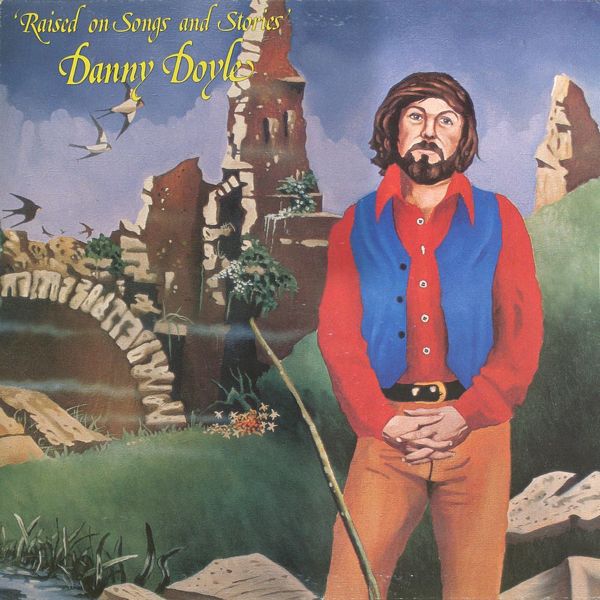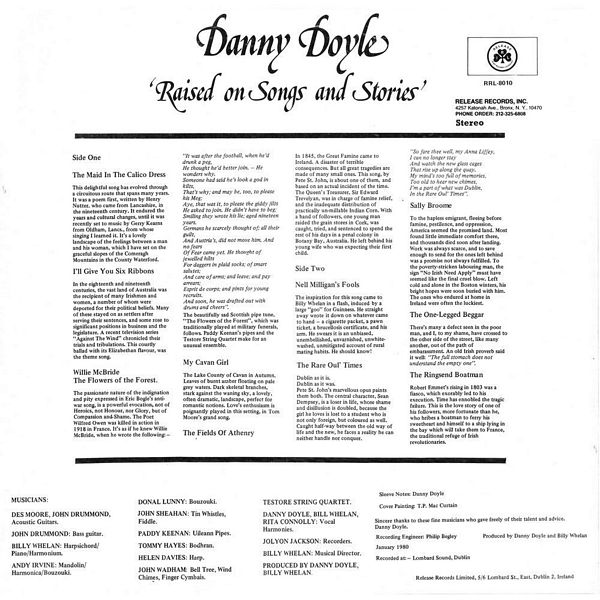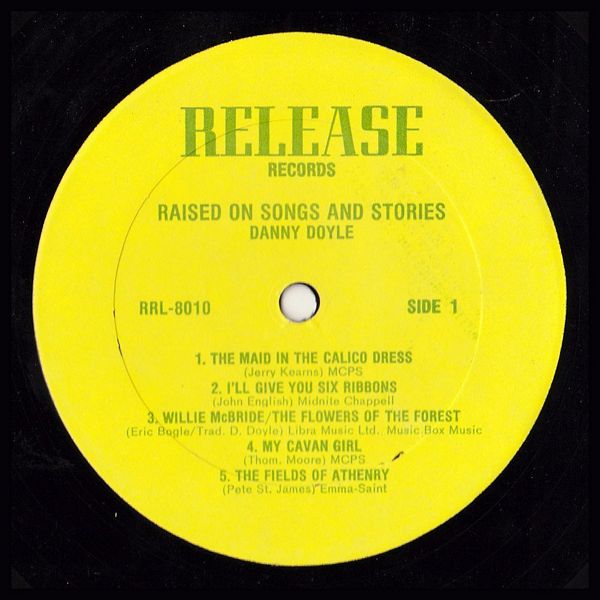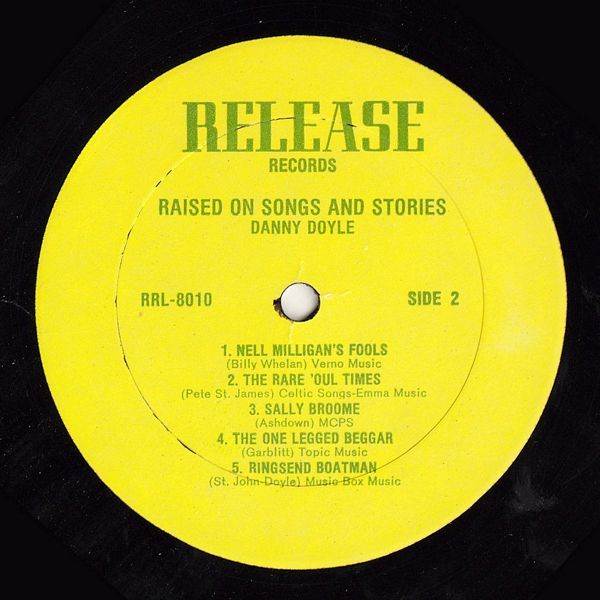

 |


 |
Sleeve Notes
The Maid In The Calico Dress
This delightful song has evolved through a circuitous route that spans many years. It was a poem first, written by Henry Nutter, who came from Lancashire, in the nineteenth century. It endured the years and cultural changes, until it was recently set to music by Gerry Kearns from Oldham, Lanes, from whose singing I learned it. It's a lovely landscape of the feelings between a man and his woman, which I have set on the graceful slopes of the Comeragh Mountains in the County Waterford.
I'll Give You Six Ribbons
In the eighteenth and nineteenth centuries, the vast land of Australia was the recipient of many Irishmen and women, a number of whom were deported for their political beliefs. Many of these stayed on as settlers after serving their sentences, and some rose to significant positions in business and the legislature. A recent television series "Against the Wind" chronicled their trials and tribulations. This courtly ballad with its Elizabethan flavour, was the theme song.
Willie McBride
The Flowers of the Forest
The passionate nature of the indignation and pity expressed in Eric Bogle's antiwar song, is a powerful evocation not of Heroics, not Honour, nor Glory, but of Compassion and Shame. The Poet Wilfred Owen was killed in action in 1918 in France. It's as if he knew Willie McBride, when he wrote the following:
"It was after the football, when he'd drunk a peg,
He thought he'd better join. - He wonders why.
Someone had said he's look a sod in kilts,
That's why; and may be, too, to please his Meg;
Aye, that was it, to please the giddy jilts
He asked to join. He didn't 't have to beg;
Smiling they wrote his lie; aged nineteen years.
Germans he scarcely thought of; all their guilt,
And Austria's, did not move him. And no fears
Of Fear came yet. He thought of jewelled hilts
For daggers in plaid socks; of smart salutes;
And care of arms; and leave; and pay arrears;
Esprit de corps; and pints for young recruits.
And soon, he was drafted out with drums and cheers".
The beautifully sad Scottish pipe tune, "The Flowers of the Forest", which was traditionally played at military funerals, follows, Paddy Keenan's pipes and the Testore String Quartet make for an unusual ensemble.
My Cavan Girl
The Lake County of Cavan in Autumn. Leaves of burnt amber floating on pale grey waters. Dark skeletal branches, stark against the waning sky, a lovely, often dramatic, landscape, perfect for romantic notions. Love's enthusiasm is poignantly played in this setting, in Tom Moore's grand song.
The Fields Of Athenry
In 1845, the Great Famine came to Ireland. A disaster of terrible consequences. But all great tragedies are made of many small ones. This song, by Fete St. John, is about one of them, and based on an actual incident of the time. The Queen's Treasurer. Sir Edward Trevelyan, was in charge of famine relief, and the inadequate distribution of practically un-millable Indian Corn. With a band of followers, one young man raided the grain stores in Cork, was caught, tried, and sentenced to spend the rest of his days in a penal colony in Botany Bay, Australia. He left behind his young wife who was expecting their first child.
Nell Milligan's Fools
The inspiration for this song came to Billy Whelan in a flash, induced by a large "goo" for Guinness. He straight away wrote it down on whatever came to hand - a cigarette packet, a pawn ticket, a brucellosis certificate, and his arm. He swears it is an unbiased, unembellished, unvarnished, unwhite-washed, unmitigated account of rural mating habits. He should know!
The Rare Oul' Times
Dublin as it is. Dublin as it was. Pete St. John's marvellous opus paints them both. The central character, Scan Dempsey, is a loser in life, whose shame and disillusion is doubled, because the girl he loves is lost to a student who is not only foreign, but coloured as well. Caught half-way between the old way of life and the new, he faces a reality he can neither handle nor conquer.
"So fare thee well, my Anna Liffey,
I can no longer stay
And watch the new glass cages
That rise up along the quay.
My mind's too full of memories,
Too old to hear new chimes,
I'm a part of what was Dublin,
In the Rare Oul' Times".
Sally Broome
To the hapless emigrant, fleeing before famine, pestilence, and oppression, America seemed the promised land. Most found little immediate comfort there, and thousands died soon after landing. Work was always scarce, and to save enough to send for the ones left behind was a promise not always fulfilled. To the poverty-stricken labouring man, the sign "No Irish Need Apply" must have seemed like the final cruel blow. Left cold and alone in the Boston winters, his bright hopes were soon buried with him. The ones who endured at home in Ireland were often the luckiest.
The One-Legged Beggar
There's many a defect seen in the poor man, and I, to my shame, have crossed to the other side of the street, like many another, out of the path of embarrassment. An old Irish proverb said it well: "The full stomach docs not understand the empty one".
The Ringsend Boatman
Robert Emmet's rising in 1803 was a fiasco, which exorably led to his execution. Time has ennobled I ho tragic failure. This the love story of one of his followers, more fortunate than he, who bribes a boatman to ferry his sweetheart and himself to a ship lying in the bay which will take them France, the traditional refuge of Irish revolutionaries.